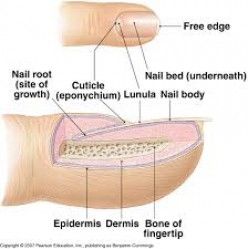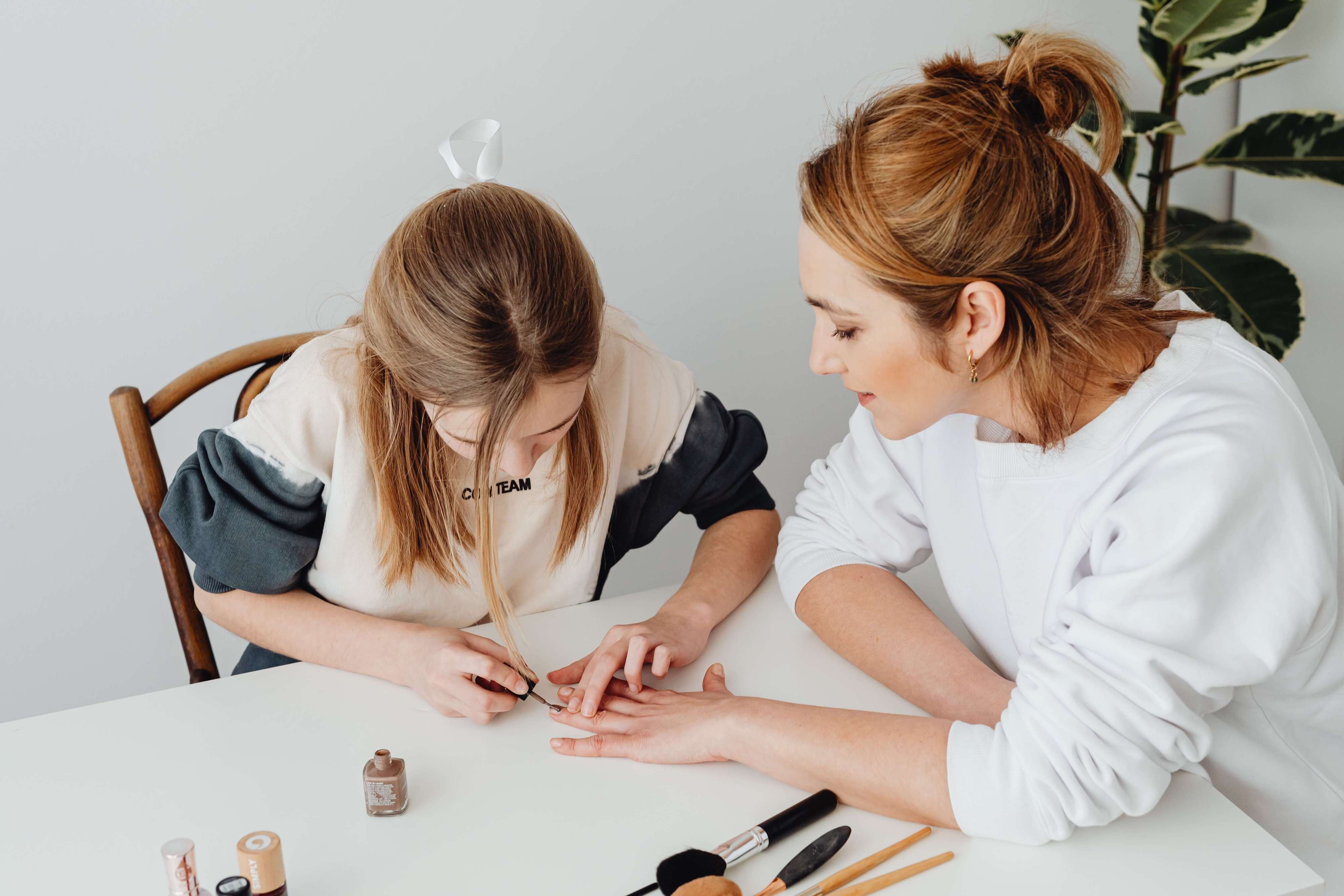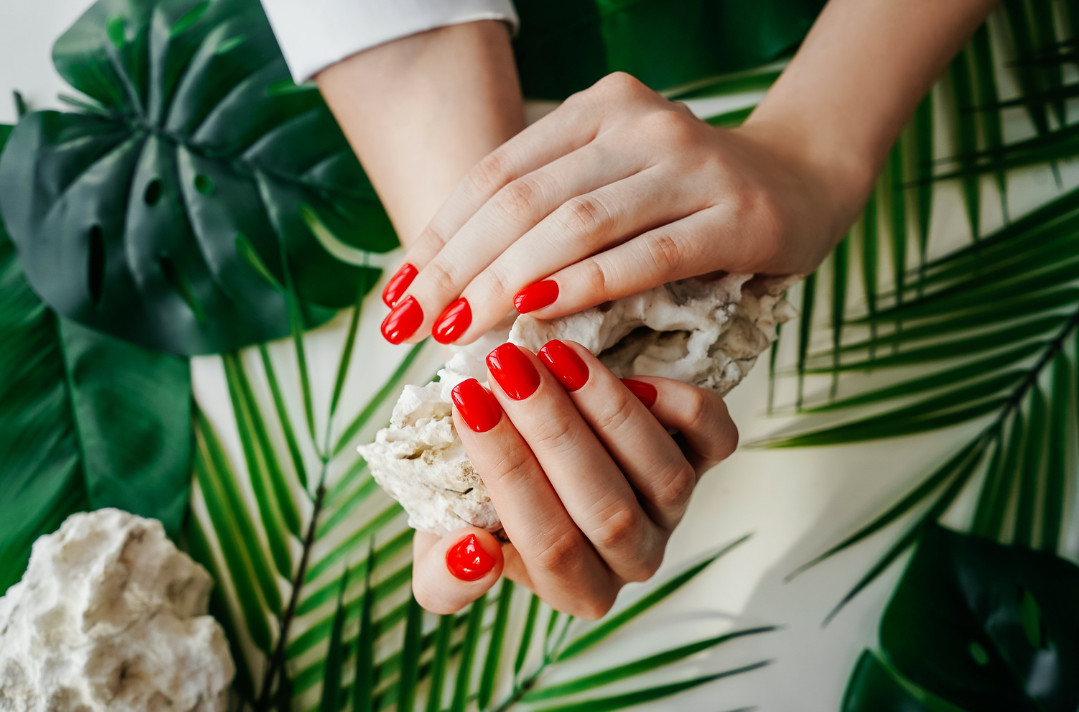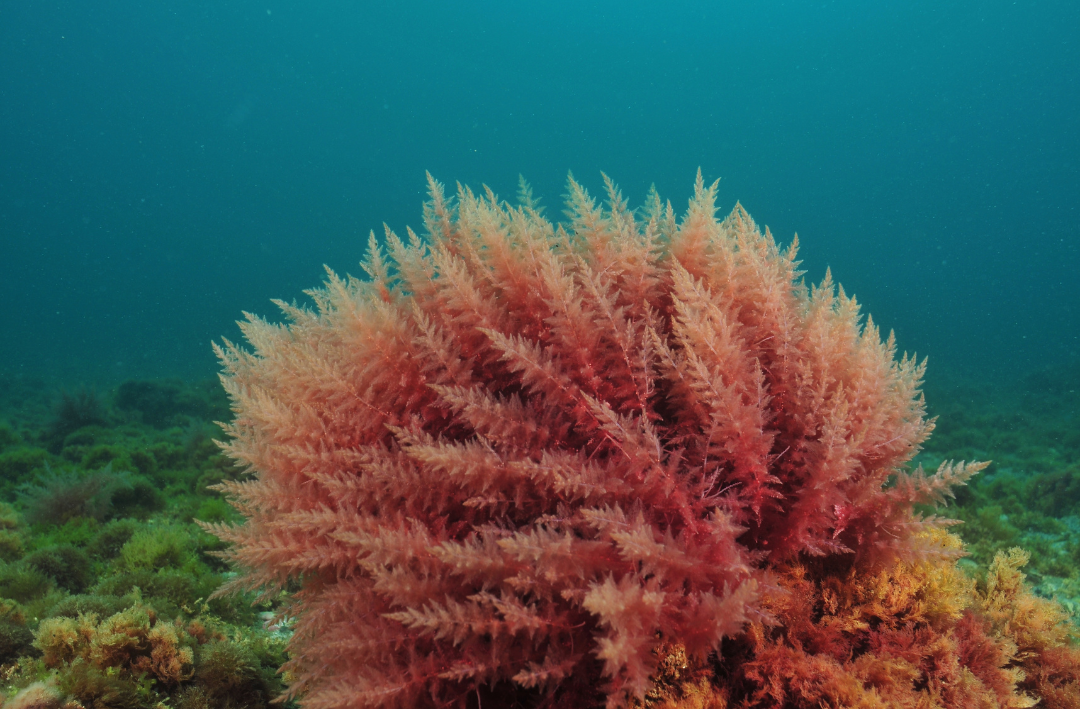Understanding the Nail Plate
We often treat nails as simple, dead surfaces — just another place to add a pop of color. But the nail plate is a living, dynamic structure made of keratin, held together by strong disulfide bonds and very little lipid content. Its composition is unlike skin or any other human membrane.

Nail anatomy
Nails Are Not Waterproof
Although they look solid, nail plates behave like hydrophilic gel membranes. They attract and absorb water through microscopic pores. Ever notice your nails flatten and feel thicker after a bath? That’s water altering their shape from within.
Water Expands Nail Pores
Research shows water—or any water-based product—swells those pores, dramatically increasing nail permeability. Scientists leverage this property to deliver topical treatments for nail conditions more effectively.
What Else Do Nails Absorb?
If water can get in, so can other substances. Conventional polishes often contain chemicals you don’t want soaking into your body. That’s why ingredient choice counts.
Why We Formulated a 10-Free Polish
Our Colorly 10-free nail polish skips the ten most common toxins found in traditional formulas, giving you vibrant, long-lasting color without compromising nail — and overall — health.
Key Takeaway
Your nails are porous, absorptive, and deserve the same clean-beauty standards you expect from skincare. Choosing a 10-free polish is both a beauty decision and a wellness decision.





